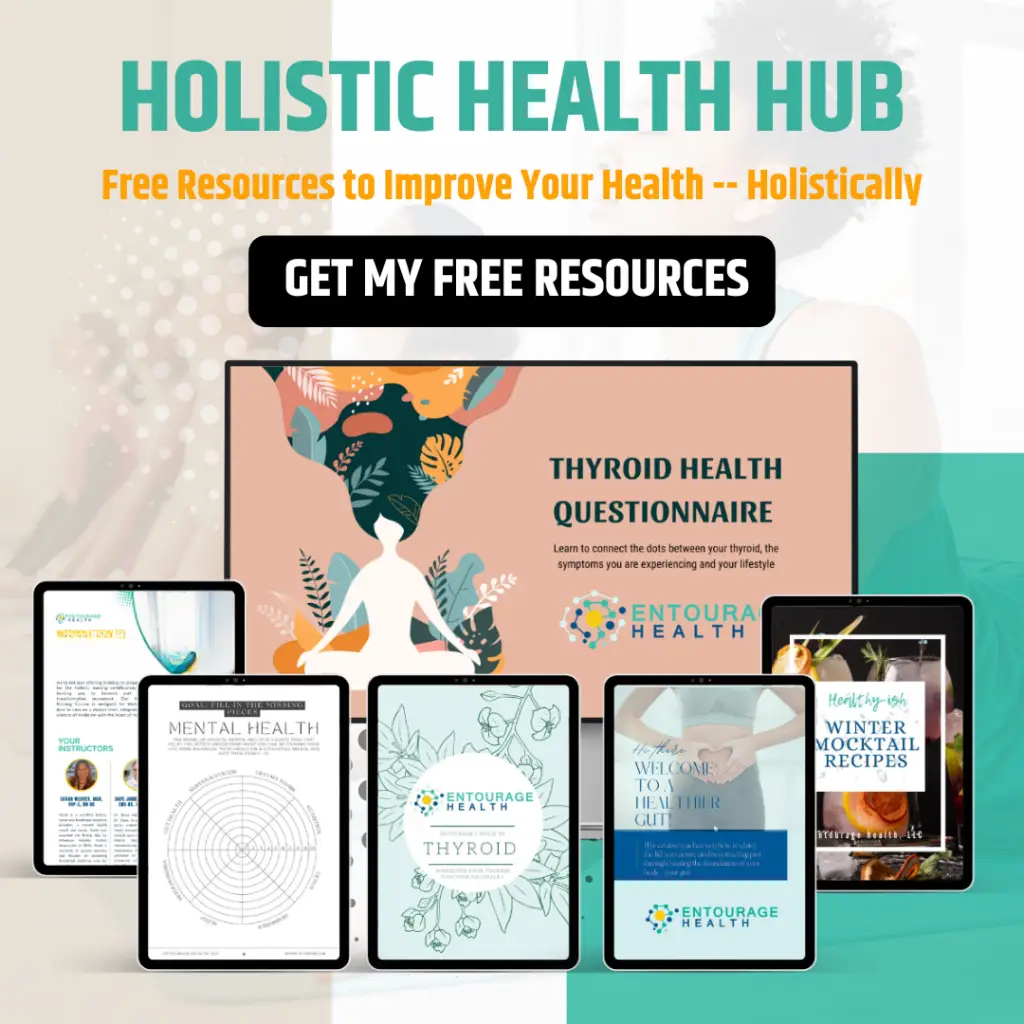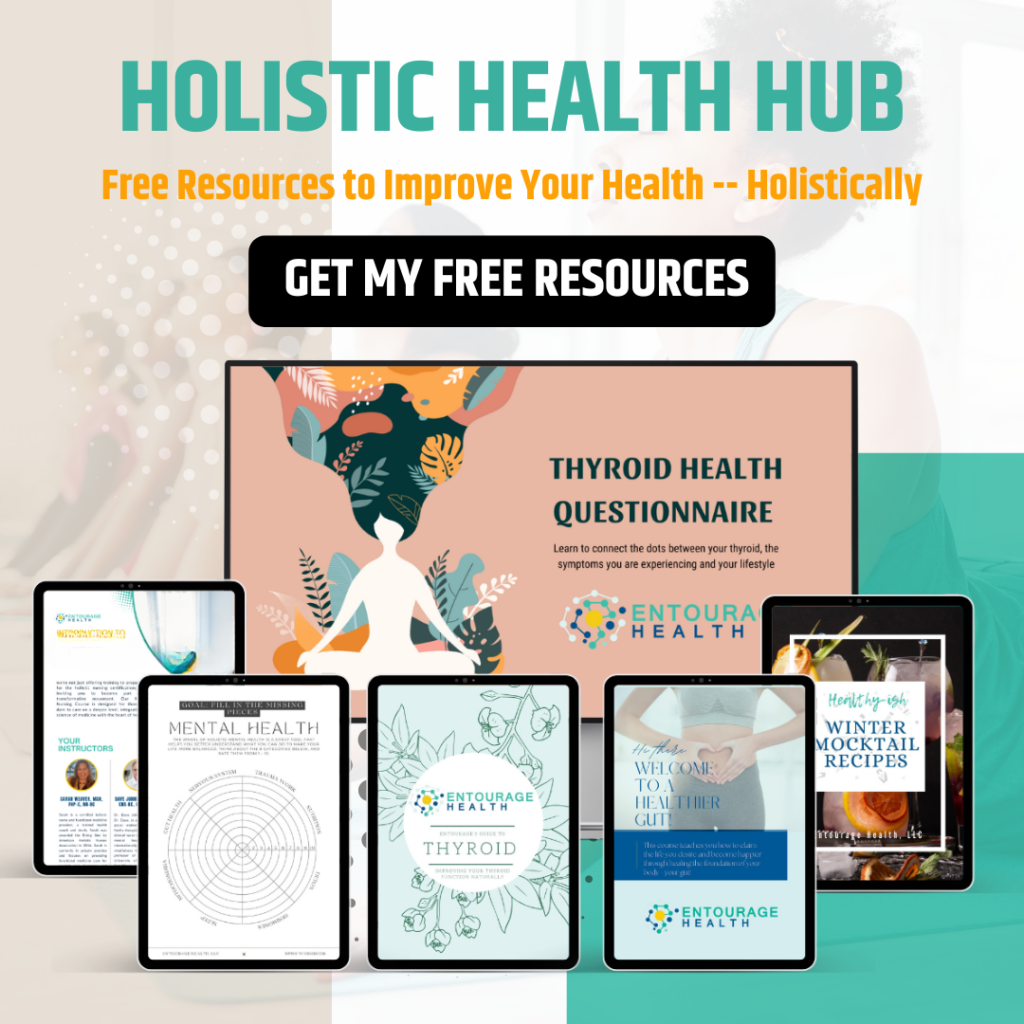Have you been told your thyroid labs are “normal,” but you still feel tired, foggy, or frustrated with stubborn weight gain? You’re not alone.
Many people are struggling with classic signs of low thyroid function—fatigue, thinning hair, dry skin, cold hands and feet—yet are dismissed because their TSH levels are within range. The truth is, thyroid health is complex, and the root cause of dysfunction often lies well beyond the thyroid gland itself.
In functional medicine, we believe that your symptoms are real, and they deserve a deeper investigation. Here are five often-overlooked causes of hypothyroidism that may be standing between you and lasting healing.
Nutrient Deficiencies
Your thyroid depends on certain nutrients to function properly. Without them, even the best medication won’t be enough to restore balance.
🧬 Key nutrients that affect thyroid health:
- Iodine – Essential for the production of T3 and T4 hormones
- Selenium – Converts T4 (inactive hormone) into T3 (active hormone)
- Zinc & Iron – Support the enzyme activity needed for hormone production
- Vitamin D & Magnesium – Crucial for immune balance and inflammation control
Even mild deficiencies in these nutrients can cause or worsen thyroid symptoms. Unfortunately, nutrient testing is not routinely performed in conventional medicine.
💡 Functional testing can reveal hidden deficiencies and guide targeted supplementation to support healing from the inside out.
Gut Health Imbalances
Did you know your gut and thyroid are deeply connected?
Approximately 20% of your T4 is converted into active T3 in the gut, and your intestinal lining plays a major role in immune system regulation. If your gut is inflamed, imbalanced, or leaky, your thyroid won’t function optimally.
Common gut-related issues linked to thyroid dysfunction include:
- Leaky gut (intestinal permeability)
- Dysbiosis (imbalance of gut bacteria)
- Chronic infections (parasites, candida, H. pylori)
These issues can trigger or worsen autoimmune thyroid conditions like Hashimoto’s, especially if food sensitivities (like gluten or dairy) are also involved.
💡 Stool testing in functional medicine can identify inflammation, microbial imbalances, and other clues about your thyroid-gut connection.
Chronic Stress & Cortisol Imbalance
Stress is more than just a feeling—it has a profound physiological impact on your thyroid.
When your body is under chronic stress, it produces high levels of cortisol. Over time, this can:
- Suppress your body’s ability to produce thyroid hormones
- Increase Reverse T3, which blocks your body from using active T3
- Disrupt communication between the brain and the thyroid
Even if you’re taking medication, unmanaged stress can make it feel like you’re “resistant” to treatment.
Common signs of cortisol imbalance include:
- Difficulty sleeping or waking
- Afternoon energy crashes
- Cravings for sugar or salt
- Anxiety or irritability
💡 Comprehensive hormone testing that includes cortisol and DHEA levels can reveal imbalances in your stress hormone patterns and guide your healing plan.
Chronic Infections & Viral Reactivations Testing
Certain underlying infections can silently inflame the body and interfere with thyroid function.
One of the most well-known examples is Epstein-Barr Virus (EBV)—a virus many people are exposed to in childhood, which can reactivate during times of stress and has been linked to Hashimoto’s thyroiditis.
Other stealth infections that may play a role include:
- H. pylori (a bacteria in the stomach lining)
- Candida
- Lyme and co-infections
These infections can disrupt immune balance, trigger autoimmunity, and cause persistent fatigue, even if your thyroid labs look “fine.”
💡 Functional labs can assess for chronic viral loads or gut infections that may be at the root of your symptoms.

Mold Exposure & Environmental Toxins
Environmental toxins are powerful endocrine disruptors that can silently sabotage thyroid health.
Common culprits include:
- Mold/mycotoxins – Often from water-damaged homes or offices
- Heavy metals – Like mercury or lead
- Plastics & pesticides – Including BPA, phthalates, and glyphosate
These toxins can:
- Interfere with thyroid hormone receptors
- Impair hormone conversion and detox pathways
- Trigger autoimmune flare-ups
If you’ve experienced unexplained fatigue, chemical sensitivities, or brain fog—especially after a move or water damage—you may need to consider hidden toxic exposures.
💡 Mycotoxin testing and toxin panels can uncover environmental burdens and guide effective detoxification strategies.
Conclusion: It’s Not All in Your Head—It’s in Your Whole Body
If you’re still struggling with hypothyroid symptoms, it’s time to look beyond the basics. These five hidden root causes—nutrient deficiencies, gut imbalances, stress, chronic infections, and toxic exposures—are often missed in conventional care but can make all the difference in how you feel.
At Entourage Functional Medicine, we take a whole-body, root-cause approach to thyroid health. We use comprehensive testing to uncover what’s really going on and create a customized healing plan that supports YOU—not just your labs.
🎓 Want to go deeper?
Join me for a FREE live Thyroid Health Masterclass where we’ll unpack these hidden factors, decode your labs, and explore how to heal your thyroid naturally with a functional medicine approach.
🗓️ When: April 2, 2025 at 8PM EST
🧠 Topic: Low Thyroid & Hashimoto’s – Root Causes, Treatment Options, and True Healing
🔗 Register Now
Let’s stop guessing—and start healing.





